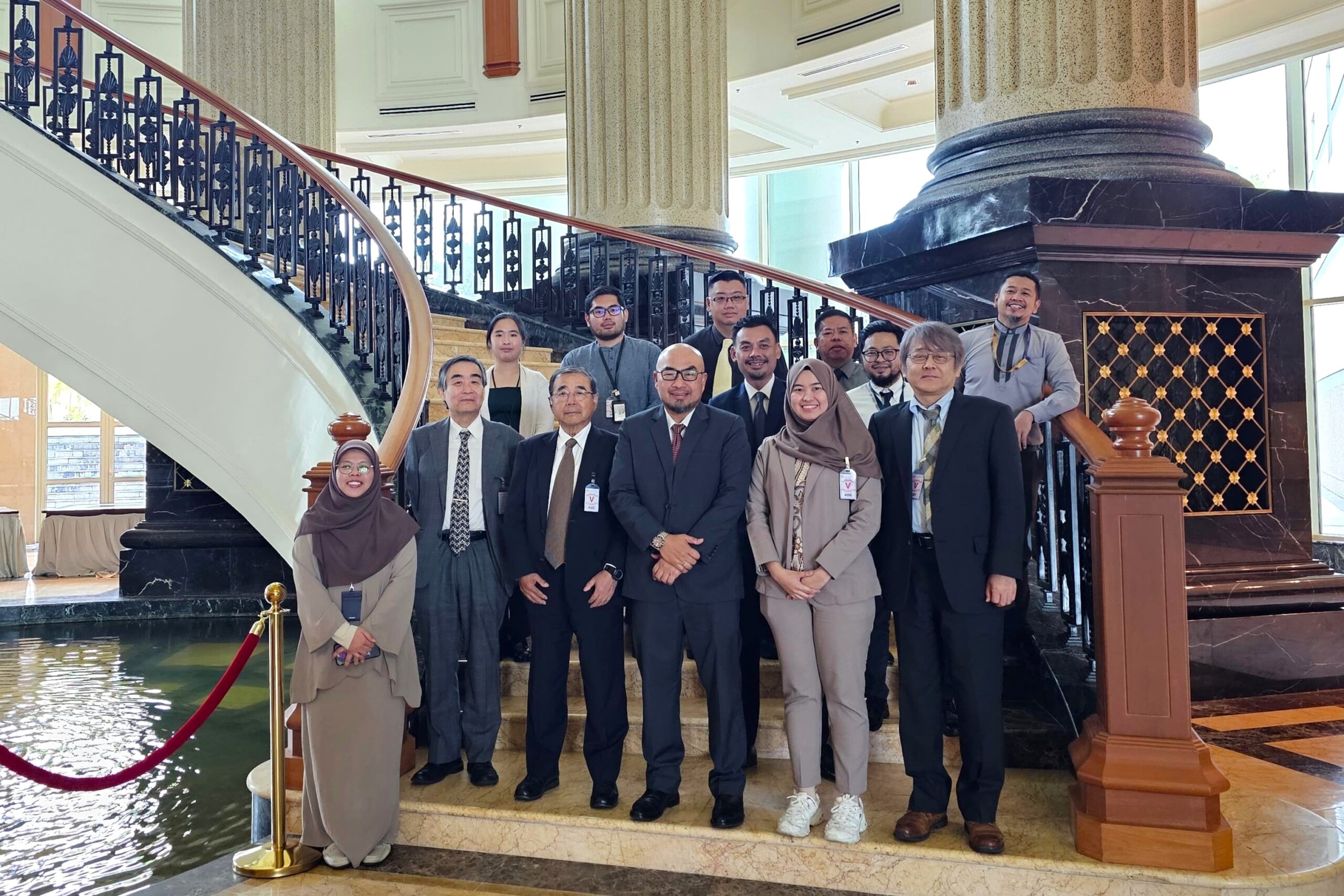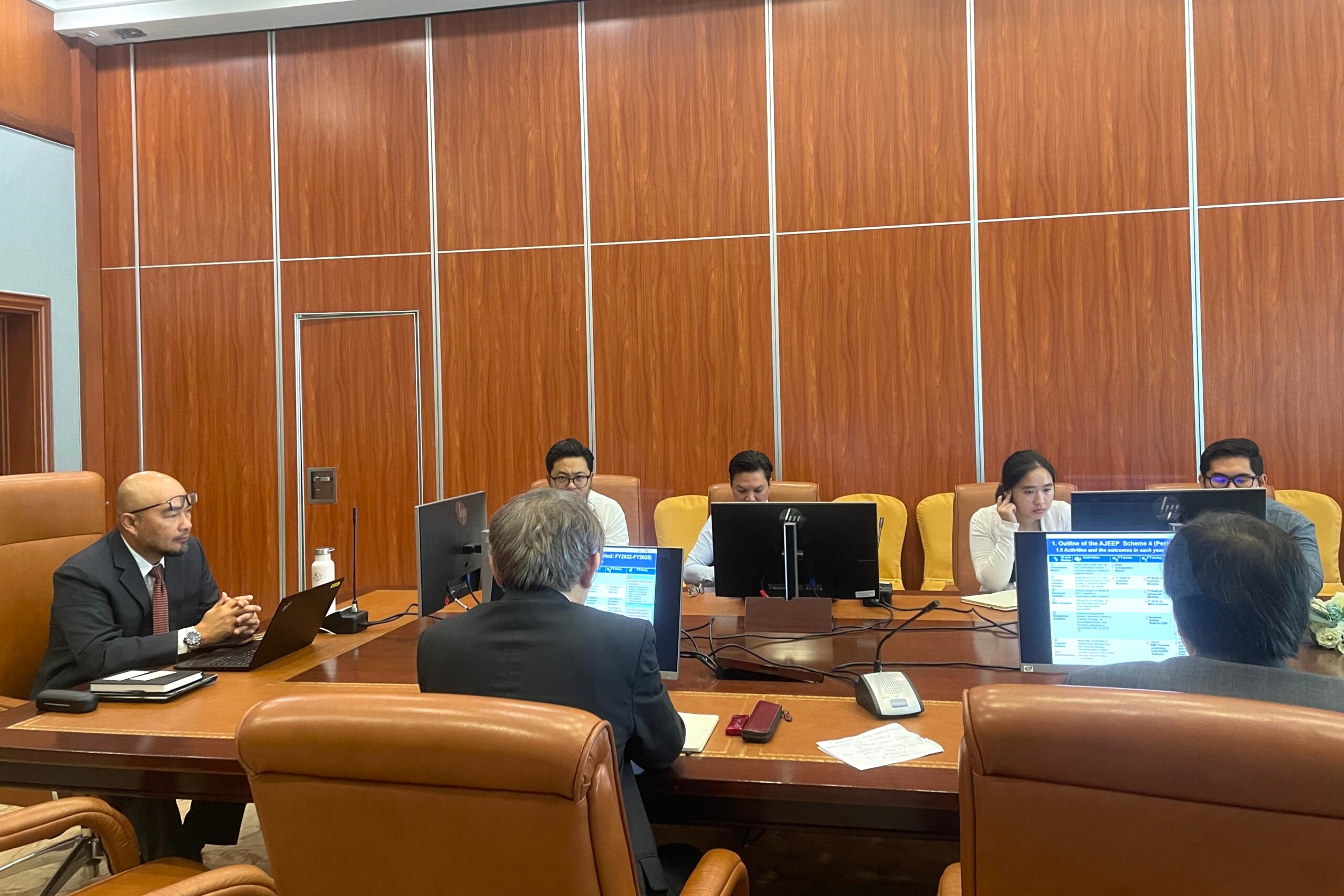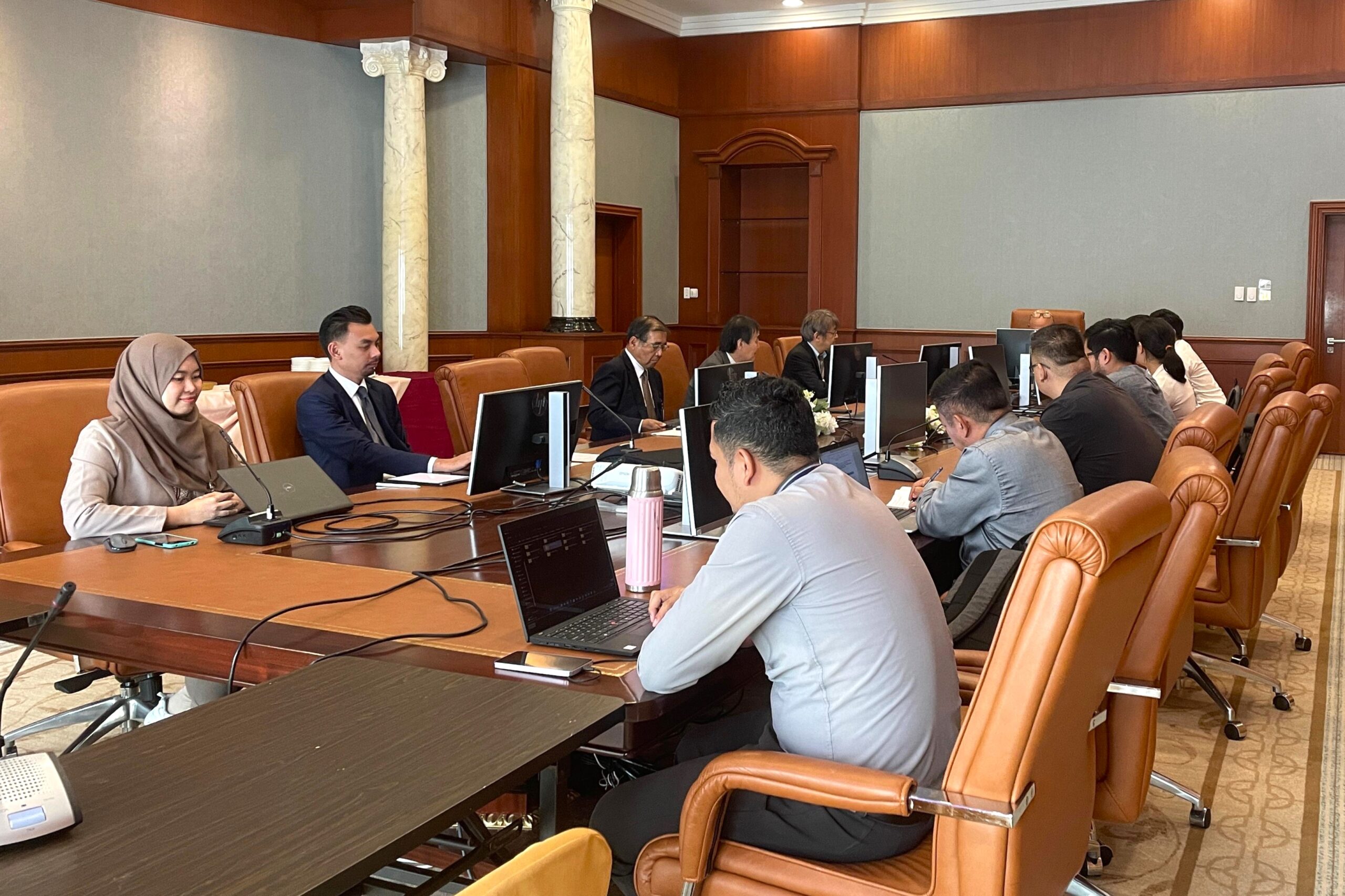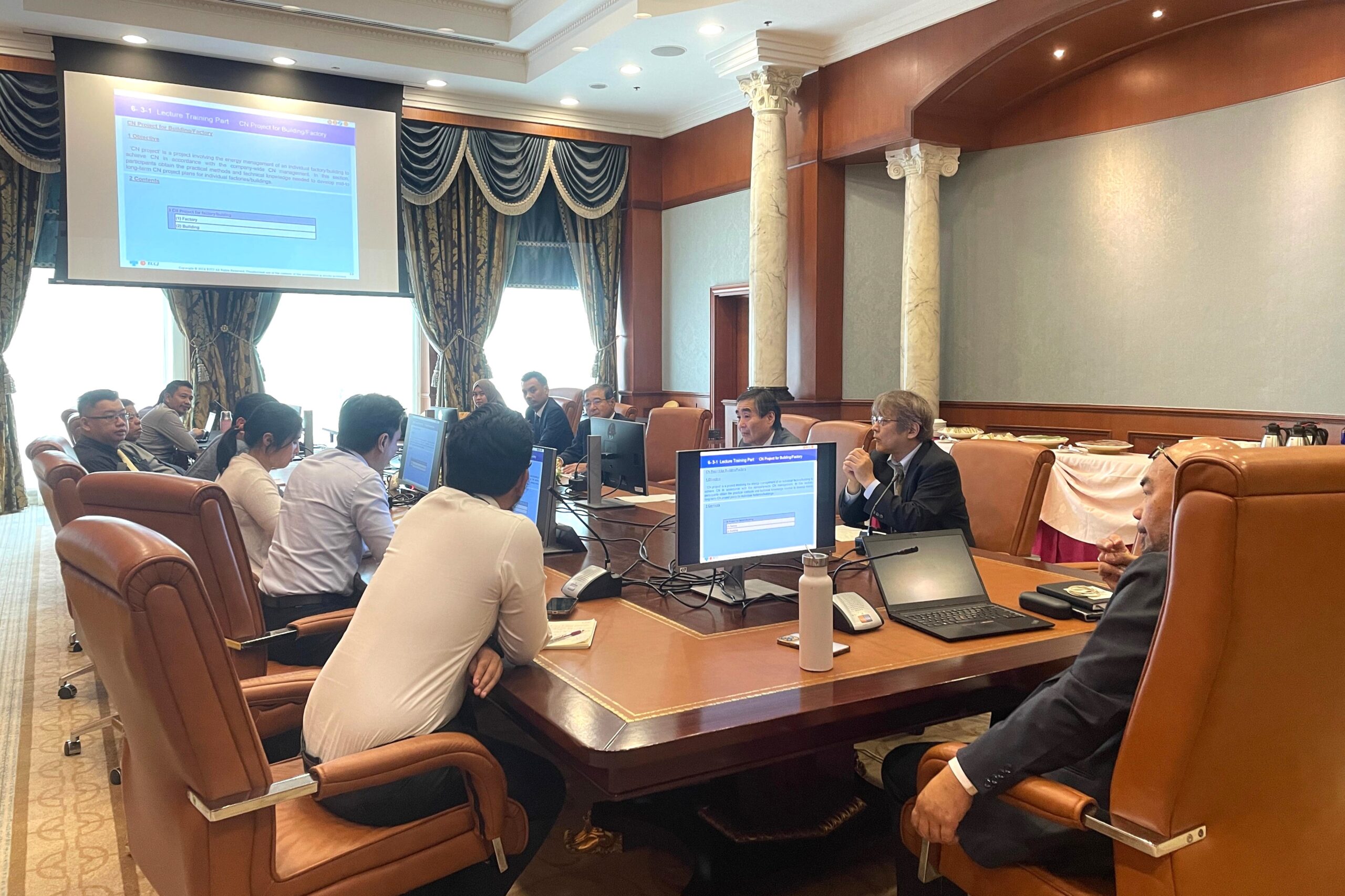Menu

Photo 1. Participants of the AJEEP Scheme 4 Country Visit Meeting to Brunei Darussalam
The ASEAN Centre for Energy (ACE), in collaboration with the Energy Conservation Center Japan (ECCJ), conducted a country visit to Brunei Darussalam under the ASEAN-Japan Energy Efficiency Partnership (AJEEP) Scheme 4. The meeting took place on 22 October 2024 at the Department of Energy (DOE) at the Prime Minister’s Office Conference Room, Brunei Darussalam. Participants included officials from DOE, Department of Electrical Services, Ministry of Defense, Ministry of Development, representatives from ACE and ECCJ.
AJEEP is a collaborative initiative between ASEAN and Japan, implemented by ACE and ECCJ with funding from Japan’s Ministry of Economy, Trade, and Industry (METI). The programme aims to enhance Energy Efficiency and Conservation (EE&C) policies and practices across the region through capacity–building efforts. Currently in its Scheme 4 and 5 phases, AJEEP’s Scheme 4 is dedicated to supporting the development and implementation of the Sustainable ASEAN Energy Management Certification Scheme (SAEMAS).

Photo 2. Abdul Salam bin Haji Abdul Wahab, Deputy Director of Energy Transition Division (left), leading the meeting.
The country visit to Brunei Darussalam, part of AJEEP Scheme 4 activities, focused on disseminating updates on the SAEMAS development, discussing the progress of the energy management certification program with Brunei Darussalam stakeholders and institutions, exploring strategic steps to integrate SAEMAS into Brunei’s national certification program, and examining potential support from AJEEP to accelerate the development of Brunei’s Energy Manager certification program. The meeting was led by Abdul Salam bin Haji Abdul Wahab, Deputy Director of Energy Transition Division.
The meeting commenced with Dr. Ushio from ECCJ outlining the timeline for AJEEP Scheme 4 and the proposed plans for 2024–2025. For 2024–2025, the SAEMAS Working Group (WG) aims to finalise the Common Standard Modules (CSM) and draft the Advanced Modules (AM), while also setting up operational conditions for a trial run in 2025. The next detailed discussion about SAEMAS will take place at ECAP35 in December 2025, inviting all AMS including Brunei Darussalam to participate in the workshop.
Mardika Firlina, Associate Officer of Energy Efficiency and Conservation (CEE) Department at ACE emphasised that SAEMAS, as part of AJEEP Scheme 4, aims to address the regional demand for skilled energy managers by establishing a certification system aligned with energy management needs. By conducting a comparative assessment, ACE has identified gaps in training providers’ roles and coordination across the ASEAN Member States, which will require further consultation to harmonise the SAEMAS structure with national systems. Additionally, ACE envisions SAEMAS as a regional framework that complements national certifications, ensuring flexible mobility and recognition of energy management professionals across ASEAN.

Photo 3. Discussion during AJEEP Scheme 4 Country Visit Meeting
DOE presented Brunei Darussalam’s current energy efficiency strategy, which targets the residential, commercial, government, and industrial sectors. The Energy Managers for Government Sector initiative, launched in 2019, aims to promote energy efficiency and conservation within the government sector to ensure responsible energy consumption and protect natural gas resources. Activities include ongoing Energy Managers Meetings, the Energy Managers Cup, Training of Trainers (ToT) for government energy managers, and the certification of energy managers. These efforts support increased audits in the government, commercial, and industrial sectors to uncover energy-saving opportunities.
Looking ahead, the initiative targets Green Building Certification and the Net Zero Industrial Clusters, with the ultimate goal of achieving recognition at the ASEAN Energy Awards. Future plans include developing a comprehensive policy framework with mandatory energy manager certification, incentives for efficiency projects, and training support. Additionally, efforts will enhance EE&C in the private sector by promoting Green Buildings and Net Zero Industrial Clusters. Strengthening regional collaboration with ACE and ECCJ will focus on certification programs and deeper cooperation in energy sustainability and market development.

Photo 4. Presentation Session by Energy Conservation Center Japan (ECCJ)
The meeting continued with Dr Yoshitaka Ushio from ECCJ outlining the preparation status of both CSM and AM, noting that the CSM program will integrate AJEEP Scheme 2 ToT and ASEAN Energy Management and Accreditation System (AEMAS) materials, allowing ASEAN AJEEP Trainers and certified AMS Energy Managers to qualify for Energy Management Professional (EMP) status through evaluations and supplementary training.
In conclusion, the country visit under AJEEP Scheme 4 to Brunei Darussalam highlighted several key challenges and recommendations. One major challenge in Brunei is the limited number of ToT with some trainers no longer working in the energy efficiency sector. It was suggested that the AJEEP program provide additional ToT sessions, or alternatively, explore the possibility of trainers from other AMS delivering online lectures for Brunei. Another challenge involves conducting energy audits in Brunei’s industrial sector, where there are limited options. It was recommended to engage the SAEMAS WG in discussing potential solutions to address this issue.
